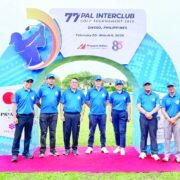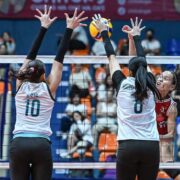Wi-Fi before water?

This piece marks a milestone for me, born out of desperation, necessity, and memory. It was my first real attempt at writing something that mattered. Overwhelmed by the weight of experience and silence, I realized it was time to share what I knew, regardless of judgment or cost, if only to help one other soul. “We don’t want your help, just bring back the internet.” Said half in jest, half in despair, this line echoed through the rubble after Typhoon “Odette.”
It wasn’t a punchline. It was a mirror: our survival, like it or not, had become inseparable from connectivity.
When Odette made landfall on Dec. 16, 2021, we thought we were ready, with bottled water, canned goods, flashlights, and fully charged phones. Cebu had survived worse before. What was one more storm? But within hours, that confidence crumbled. Power went out. Water dried up. Communications vanished. And just like that, the 21st-century typhoon survival kit proved incomplete. What people craved most wasn’t food or fuel. It was a signal. “May signal na ba?”
By Day 2, we had groceries in the house and a full tank of gas, small victories amid the chaos. Strangely enough, the bank’s POS terminals were still online, even as our faucets spat out dust and cell signals disappeared like fading ghosts. We had two kids. For seven days straight, we kept the pickup truck running 24/7 just to power its air-conditioning, so they could sleep, or at least rest, in the thick, unmoving heat. Was it irrational? Maybe. But it kept us going. And in those moments, survival didn’t have to make sense. It just had to work.
We bathed with water from a roaming fire truck, like a primitive spa with sirens. Six days in, in the heart of Cebu City, we had no electricity, no running water, and no means of contact. The fridge was dead. Toilets stopped flushing. Online learning disappeared. Our kids were suddenly cut off from both school and sanity.
The silence of no internet is … deafening. At some point, I forgot where my phone was. I heard cicadas. My Messenger was a ghost town. No notifications. No noise. Just me, the kids, and conversations with actual eye contact with our next-door neighbors. Who knew disconnection could reconnect us?
Some scoffed, how dare people beg for Wi-Fi while others had no food? But to many of us, the internet wasn’t a luxury. It was our lifeline; digital access meant more than memes. It meant mobile banking, telehealth consults, news updates, or government alerts. Mocking the need for connection misses the point: we weren’t clinging to privilege. We were grasping for certainty. For human contact. For hope. Typhoon “Yolanda” taught us about the wrath of storm surges.
Odette taught us about the fragility of communication. Cell towers fell like matchsticks. Power lines buckled. Fiber-optic veins snapped. Where Was the government? Absent. Or worse, present only in press briefings. People grew angry, but not at the usual suspects. Not at each other. Not even in the storm. Government presence was almost mythical. Again, the same questions that haunt every calamity in this country returned: Where were the leaders? Where was the plan? Why does it always feel like the first time?
And yet, in the chaos, ordinary people stepped up. Linemen, gas attendants, sari-sari store owners, ice vendors, garbage collectors, jeepney drivers, they kept the city stitched together while officials vanished. Odette didn’t just wreck infrastructure; it exposed our moral collapse. Connectivity is no longer a luxury. In a digital, cashless world, internet access is public infrastructure. It must be universal, resilient, and disaster-proof. This isn’t just about stronger towers, it’s about empowering barangays and decentralizing response. The storms will keep coming. The disconnection doesn’t have to.
On Christmas Eve, I reported for duty at Bantayan District Hospital. It was official work, but also an escape. My family came with me, grateful for the calm that duty oddly provided. By Jan. 2, 2022, we were back in Cebu City. Back to rot, rubble, and a warped new normal.
Our privilege was clear. We lived near hospitals. Near the city center. Near luck. Just a kilometer from Fuente Osmeña, we got power, water, and signal back early. But beyond that radius, aid vanished. Days passed. The worst storms don’t just topple houses; they unmask the fragility of systems, the disappearance of leadership, and the illusions of preparedness.
At the end of 2021, there were no cries for ayuda. No long queues for food packs. No laminated relief tarpaulins. Just one question echoing across neighborhoods: “May signal na ba?” That was the lifeline people reached for. Not to scroll. Not to trend. But to reconnect. To confirm survival. To feel less alone. And that’s what we need to hear. Because those cries weren’t about entitlement. They were about endurance in a digitized, disconnected world.
And we need to start listening to them.
—————-
Melben Angel S. Jochico, MD is a government physician and editorial satirist based in Bantayan, Cebu. A survivor of Typhoon Odette and a former medical frontliner during the COVID-19 pandemic.

















Philippines’ role in Southeast Asia’s energy transition